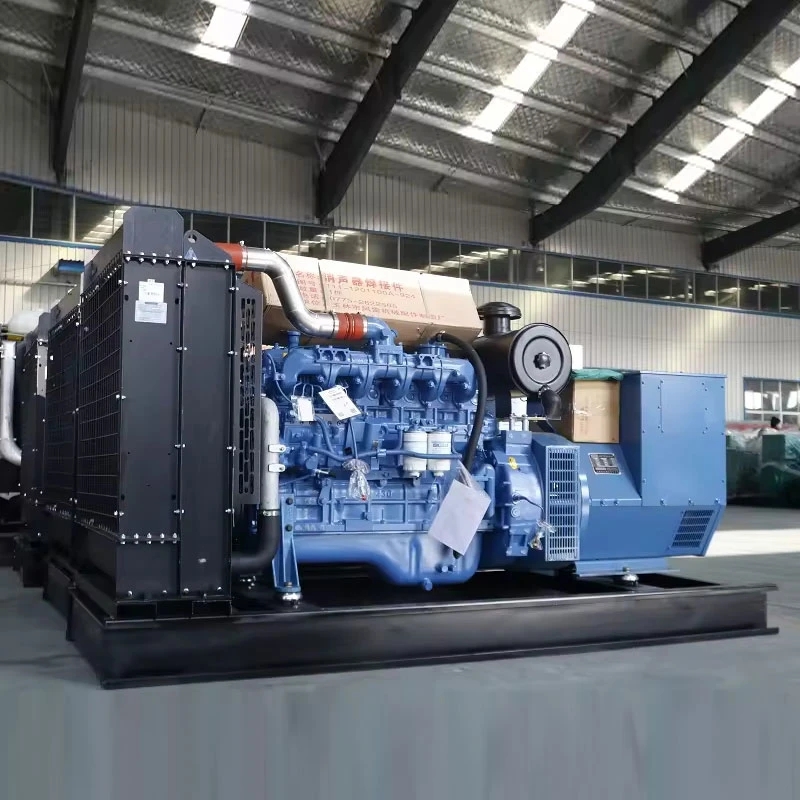The Lifesaving Role of Diesel Generators in Hospitals
Introduction
Hospitals play a critical role in society by providing essential healthcare services to individuals in need. In times of emergencies and natural disasters, hospitals must continue to function smoothly to save lives and provide care to patients. One of the key components that ensure the uninterrupted operation of hospitals during power outages is the diesel generator. In this article, we will explore the importance of diesel generators in hospitals, their benefits, challenges, and best practices for their maintenance and operation.
Importance of Diesel Generators in Hospitals
Hospitals are facilities that operate 24/7, providing critical care services to patients regardless of the time of day. In the event of a power outage, hospitals must have a reliable backup power source to ensure that essential medical equipment, lighting, heating, and cooling systems continue to function. Diesel generators are the preferred choice for backup power in hospitals due to their reliability, durability, and ability to provide continuous power for an extended period.
During emergencies such as natural disasters, blackouts, or grid failures, diesel generators play a crucial role in maintaining the operations of hospitals. They ensure that life-saving medical equipment such as ventilators, monitors, and refrigeration units remain operational, allowing healthcare professionals to continue providing care to patients without interruption. In critical care units such as intensive care, emergency rooms, and operating theaters, a reliable power supply is essential to support life-saving procedures and treatments.
Benefits of Diesel Generators in Hospitals
1. Reliability: Diesel generators are known for their reliability and durability, making them an ideal choice for hospitals where uninterrupted power supply is critical. Diesel engines are robust and can withstand heavy loads and continuous operation for extended periods.
2. Quick Start-Up: Diesel generators can start up quickly, providing immediate power in the event of a power outage. This rapid response is essential in hospitals where every second counts in patient care.
3. Fuel Availability: Diesel fuel is widely available and can be stored on-site in large quantities, ensuring that hospitals have a continuous fuel supply to run their generators during emergencies.
4. Longevity: Diesel generators have a longer lifespan compared to other types of generators, making them a cost-effective investment for hospitals in the long run.
5. Capacity: Diesel generators come in a range of sizes and capacities, allowing hospitals to choose the appropriate generator size based on their power requirements.
Challenges of Diesel Generators in Hospitals
While diesel generators offer numerous benefits, there are also challenges associated with their use in hospitals. Some of the key challenges include:
1. Environmental Impact: Diesel generators emit pollutants such as nitrogen oxides, particulate matter, and carbon monoxide, which can have negative effects on air quality and public health.
2. Maintenance Requirements: Diesel generators require regular maintenance to ensure they remain operational during emergencies. useful reference must invest in routine inspections, testing, and servicing of their generators to prevent breakdowns.
3. Fuel Storage and Safety: Storing large quantities of diesel fuel on-site presents safety risks, such as the potential for leaks, spills, and fire hazards. Hospitals must adhere to strict safety regulations and protocols for fuel storage to mitigate these risks.
4. Noise Pollution: Diesel generators can produce high levels of noise during operation, which can be disruptive to patients, staff, and neighboring residents. Hospitals must consider noise mitigation measures to minimize the impact of generator noise on their surroundings.
Best Practices for Diesel Generator Maintenance in Hospitals
To ensure the reliable operation of diesel generators in hospitals, it is essential to follow best practices for maintenance and operation. Some key best practices include:
1. Regular Inspections: Conduct routine inspections of the diesel generator system to check for any signs of wear, damage, or malfunction. Inspect the fuel system, electrical components, cooling system, and exhaust system for any issues.

2. Load Testing: Regularly perform load testing on the diesel generator to ensure it can handle the full load of the hospital's critical equipment. Load testing helps identify any weaknesses or issues with the generator under operating conditions.
3. Fuel Quality Monitoring: Monitor the quality of the diesel fuel stored on-site to ensure it remains clean and free of contaminants. Contaminated fuel can lead to engine problems and reduce the efficiency of the generator.
4. Scheduled Maintenance: Create a maintenance schedule for the diesel generator system and adhere to it diligently. Schedule routine maintenance tasks such as oil changes, filter replacements, and system checks to prevent unexpected breakdowns.
5. Staff Training: Provide training to hospital staff on the proper operation and maintenance of the diesel generator system. Ensure that staff members know how to start, stop, and monitor the generator effectively during power outages.
Conclusion
Diesel generators play a vital role in ensuring the continuous operation of hospitals during power outages and emergencies. Their reliability, quick start-up time, and ability to provide continuous power make them an indispensable asset for hospitals in maintaining patient care and safety. While diesel generators offer numerous benefits, hospitals must also address challenges such as environmental impact, maintenance requirements, and fuel storage safety to ensure the safe and effective operation of their generators. By following best practices for maintenance and operation, hospitals can ensure that their diesel generators are ready to provide lifesaving power when it is needed most.